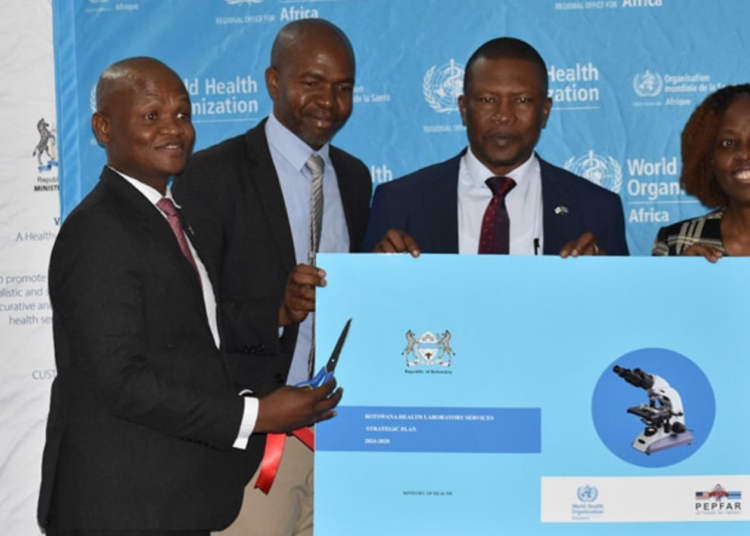The Ministry of Health, WHO, and U.S. Centers for Disease Control and Prevention (CDC) has launched the National Laboratory Strategic Plan for Botswana.
The Strategic Plan holds the promise of numerous benefits for the country.It aims to modernize and upgrade laboratory infrastructure to better standards, ensuring the safe and efficient handling of samples.
By expanding and improving diagnostic services, Botswana will be better equipped to detect, diagnose, and manage diseases promptly.This is crucial for managing existing healthcare challenges and emerging threats. The role of laboratories in a healthcare system is paramount.
These institutions play a crucial role in diagnosing and monitoring diseases, ensuring public health, and supporting clinical decision-making.In a significant step towards strengthening healthcare infrastructure and improving public health in Botswana, the National Laboratory Strategic Plan is a comprehensive document that outlines the vision, omission, and goals of the country’s laboratory services.
This strategic initiative promises to enhance laboratory services and contribute to better disease control, surveillance, and prevention.
“The strategy will ensure that we do things differently and efficiently to safeguard the lives of our people. It is in line with the bold decision that the Government has taken to revitalize people-oriented primary healthcare,” Minister of Health Hon Dr. Edwin Dikoloti remarked.
The strategic plan also focuses on enhancing disease surveillance and monitoring capabilities, essential for tracking public health trends and emerging outbreaks.To ensure long-term sustainability, the plan includes provisions for the training and development of healthcare workers, fostering a skilled workforce capable of managing advanced laboratory technology and practices.
Implementing robust quality assurance measures will be a cornerstone of the plan, guaranteeing accurate and reliable laboratory results.
With enhanced laboratory services, healthcare providers will be better equipped to diagnose and treat diseases promptly, improving overall healthcare quality.
“Botswana’s Health Laboratory Strategic Plan is in line with the recently adopted WHO Regional Strategy on Diagnostic and Laboratory Services and Systems, which is highly applauded as a sign of being already ahead in the implementation of what the Ministry has adopted on behalf of the country, as a WHO member state.” WHO Country Representative Dr. Josephine Namboze commended.
WHO Botswana has been a steadfast partner of the Ministry of Health in the development and dissemination of the National Laboratory Strategic Plan.
WHO provided technical expertise and guidance to Botswana’s health authorities throughout the process.
This expertise encompasses various aspects of laboratory services, including quality control, capacity building, and the adoption of international best practices.
The WHO has shared internationally recognized standards and guidelines for laboratory management, quality assurance, and biosafety.
These standards help align Botswana’s laboratory services with global best practices and enable effective disease detection and response.
This collaborative effort underscores the importance of robust and efficient laboratory services in ensuring the health and well-being of the people in Botswana and the broader global community.
The launch of the National Laboratory Strategic Plan marks a transformative moment in the country’s healthcare and research sectors.






























































